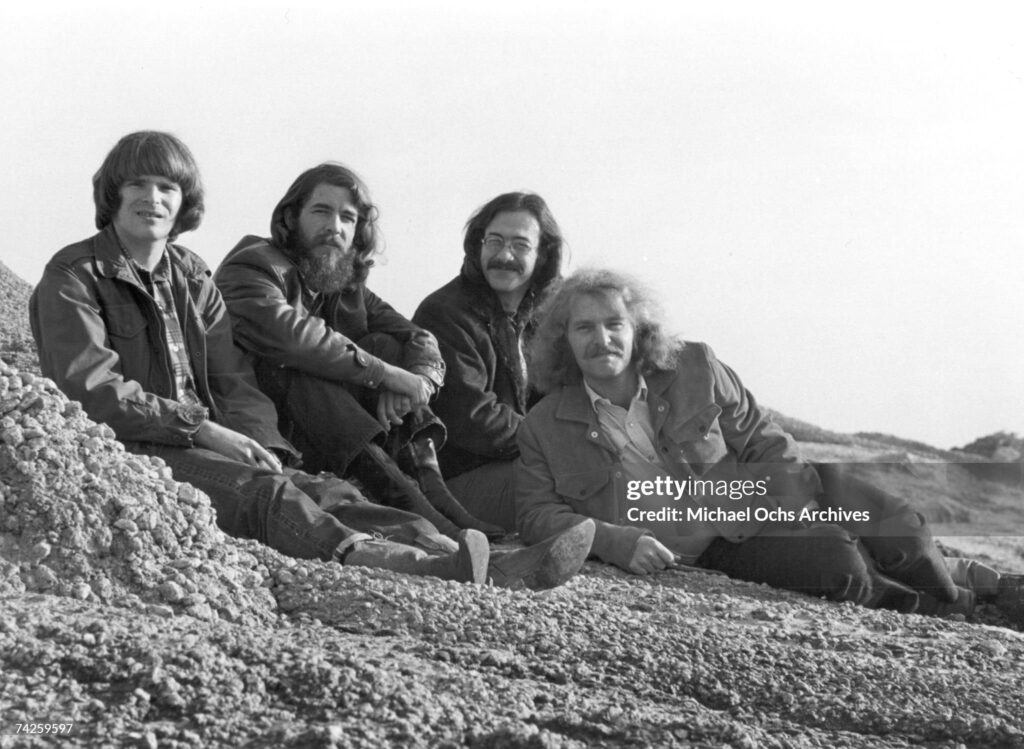
“Someday Never Comes” is a farewell spoken too late—hope postponed until it quietly hardens into regret.
When Creedence Clearwater Revival released “Someday Never Comes”, it felt less like a new chapter than a final admission. Issued in 1972 on the album “Mardi Gras”, the song arrived during the band’s last, fractured months—when unity had thinned, and words had begun to carry the weight of endings. It would be the final single released under the Creedence Clearwater Revival name, a quiet historical fact that lends the song an added gravity it never asks for, yet unmistakably carries.
On release, “Someday Never Comes” reached No. 25 on the Billboard Hot 100 and rose higher overseas, peaking at No. 3 on the UK Singles Chart. Those numbers matter, not for triumph, but for timing: listeners were still listening, still leaning in, even as the band itself was already drifting apart. The song didn’t announce a goodbye—but in retrospect, it unmistakably was one.
Written by John Fogerty, “Someday Never Comes” unfolds as a conversation across generations. The lyric begins with a father speaking to a son, promising a future moment when time will open up, when work will ease, when togetherness will finally arrive. “Someday soon,” he says. Then the song pivots. Years pass. The son becomes a man—and now he is the one making promises, repeating the same phrases, postponing the same closeness. The title lands like a verdict: someday never comes.
What makes the song so devastating is its restraint. There is no accusation, no raised voice, no dramatic confrontation. The realization dawns gently—and therefore irrevocably. The tragedy is not cruelty, but repetition. Good intentions passed down like an inheritance, quietly failing at the same point every time.
Musically, the song is deceptively simple. Acoustic guitar carries the frame, steady and unadorned, as if mimicking the dependable routines that fill life while pushing intimacy aside. The melody moves calmly, almost comfortingly, which only sharpens the ache beneath it. Fogerty’s vocal is clear and direct, stripped of swagger. He sings not as a narrator above the story, but as someone inside it—someone who understands too late what has been lost.
At the time of its release, there was public confusion around the song’s meaning, with some listeners reading it as a commentary on band conflict. Fogerty later clarified that the song was not written about his bandmates, but about family, time, and the way love is so often delayed by responsibility. That clarification matters, because it anchors the song where it belongs: in ordinary life, not rock mythology. This is not a song about fame’s excesses. It’s about the most common human failure—waiting.
Within Mardi Gras, an album already marked by division, “Someday Never Comes” stands apart in tone and intention. While the record reflects a band struggling to function as a unit, this song speaks with singular clarity. It sounds like someone stepping back from the noise and saying the one thing that still matters. That clarity is why it endures, even when the album itself remains controversial.
The deeper meaning of “Someday Never Comes” lies in its moral quietness. It doesn’t tell you what to do. It simply shows you what happens. Love deferred becomes love denied—not through malice, but through distraction. The song recognizes how easily people promise presence later, assuming time will wait. It reminds us, gently and without sermon, that time never does.
For listeners, the song often changes as life does. Heard young, it may sound like a warning. Heard later, it can feel like recognition. The ache comes not from the lyric itself, but from the moments it brings back—the phone call postponed, the visit rescheduled, the relationship assumed to be durable enough to survive neglect. Fogerty doesn’t dramatize these moments. He trusts that we already know them.
In the long arc of Creedence Clearwater Revival’s work, “Someday Never Comes” feels like an unexpected epilogue. A band known for movement—rivers rolling, wheels turning, trains running—ends its story with a song about stillness and delay. About what doesn’t happen. About what we meant to do.
And that is why the song remains quietly powerful. It doesn’t chase memory; it waits for it. Then, when the timing is right—often years later—it speaks again, with the same simple truth: love cannot live forever in the future. If it is always promised “someday,” someday never comes.